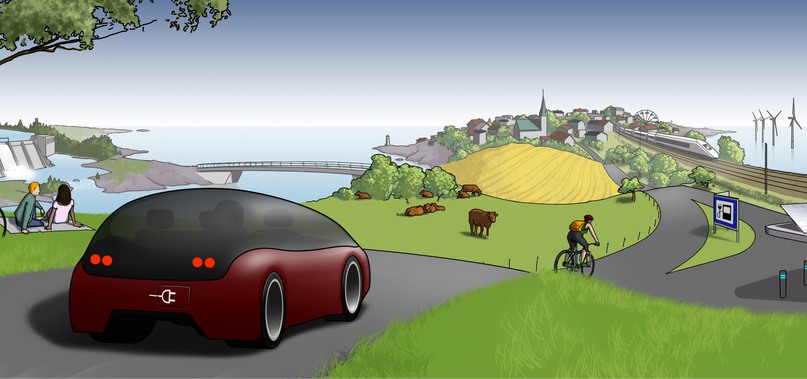More than just fossil-free vehicles required

It is possible to adjust the transport system to become fossil-free and sustainable, says Henrik Ny, associate professor in strategic sustainable development. He is positive but aware of the challenges. To combine the high and the low, systems decisions and practical solutions, new work methods are needed. This is where BTH comes in.
“The transport sector is key for societal change, however, it has to be viewed in the context of other sectors such as industry, energy, agriculture, spatial planning and social systems”, says Henrik Ny.
“Replacing fossil-driven vehicles with electric vehicles is not enough”, he argues. Other aspects in the system must be questioned and changed. What triggers the need for transport and how can this be reduced? How should cities be developed? What mode of transport is the most effective in different circumstances? Systems approaches are often difficult to describe. However, BTH has come a long way and is working closely with the regional decision processes, with companies and on joint development projects with the Energy Agency for Southeast Sweden, among others. “The collaboration with BTH enables us to directly benefit from the research, with increased knowledge and perspectives which contribute to increased capacity to further support our owners in their climate and energy work”, says Annika Öberg, project manager at the Energy Agency for Southeast Sweden.
Blekinge and Småland have come together on a systematic work method concerning vision, current situation, solutions as well as scenarios and policies. The BTH researchers also led the development of ‘On Track for 2030’ – a regional roadmap for a fast transition to sustainable personal transport.
“We should be able to become a model and testbed for how to efficiently transition an entire region. The model can be adapted to other regions – both nationally and internationally”, says Henrik Ny.
23 June 2020